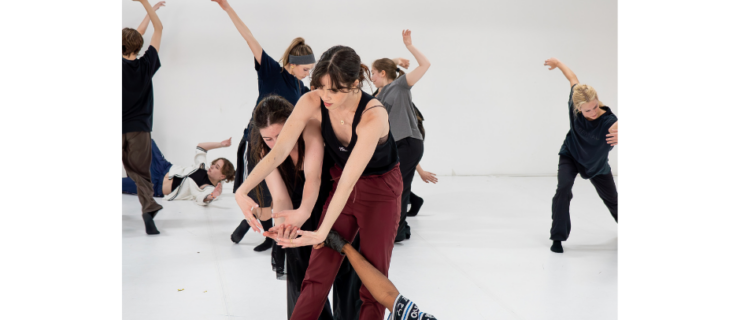Advice For Dancers
I just read your new book The Dancer’s Way (which I loved!) and finally learned how to prepare myself to dance by warming up and cooling down. But I don’t know any dance school or summer program that targets this area. How can world-class academies bypass this basic need?
Danielle
Cincinnati, OH
Dance schools are trying. In fact some, like the dance department at Muhlenberg College, have actually made my book with New York City Ballet required reading. This is a definite sign of progress; yet I realize that change is scary for some schools. Part of the problem is that their faculty hangs on to age-old curriculums that produced a few stars—even if they injured many young dancers! Other schools feel pressure to bring in more students by squeezing in extra classes, rehearsals, and performances. That approach leaves little time for dancer wellness prep and disregards the fact that young dancers with open growth plates in their joints are vulnerable to injuries. My advice is to be your own advocate. This means pacing yourself, as well as warming up and cooling down. Cross-training, such as Pilates, is only for downtime. Meanwhile, I encourage all teachers to embrace dance medicine in order to produce healthy dancers. Word gets around!
My new goal is to focus on choreography. I’ve always loved creating dances, and I know there are many opportunities to learn the nuts and bolts in workshops, dance festivals, and by assisting a choreographer. My problem is lack of confidence. What do I do if no one likes my work?
Fear of Rejection
Westchester, NY
You sound like a high achiever. If so, give yourself a break by learning from the experience whether or not you succeed. Few choreographers catch the gold ring the first time around. It can take many tries and failures before you discover what works. George Balanchine, my former boss and one of the greatest choreographers, taught me the power of resilience. He had the luxury of failure in America when no one cared about ballet. Until he made it big, he dabbled in Hollywood and even choreographed for elephants. The pressures in our global world may feel much more intense. Yet I still believe that failure is an opportunity to gain knowledge by understanding your mistakes. While facing failure is painful, it gives you the chance to learn, to grow, and to succeed as an artist. Please don’t settle for anything less.
I can’t believe my ballet company dropped me after I devoted myself to them for four years. The director said he couldn’t renew my contract because my body is too curvy. I admit my breasts did get bigger when I started menstruating at age 18. But I’m not fat! My parents are paying for college. The hardest part is dealing with my emotions about leaving dance. Can you help?
Heartbroken
Chattanooga, TN
I’ll do my best! While losing a job is one of life’s biggest stressors, it is especially painful for dancers who love their work. But thinking about a career transition in your early 20s seems premature—even in this current job market. Some companies are downsizing; others continue to hire dancers. Don’t give up! My advice is to audition for companies that are open to diverse body shapes. Also check out this month’s “Your Body” column on dancing with larger breasts. Lastly, attending college can give you an area to direct your energies as you search for another company position. In a study conducted at Fordham University, 97 percent of professional dancers said that taking one or more college courses a semester enhanced their dancing. I know going to college helped me.
OK, I get that chronic injuries can be the worst case scenario for dancers. My biggest terror has always been falling into a downward spiral of self-loathing when I can’t dance. I’ve tried to fight crappy feelings during injuries with physical therapy and slowly getting back to ballet classes. My problem is, I’m not an optimistic person. I feel like a loser if I can’t perform certain steps. Intellectually, I know it takes time to recover. Why am I so emotionally fragile?
Jessica
San Francisco, CA
There could be a number of reasons for your feelings, such as high self-expectations, feeling cut off from using dance to express yourself, or being prone to depression under duress. There is also the physical problem of being injured over and over again. My advice is to get an orthopedic screening by a dance medicine specialist (www.iadms.org). An appropriate assessment will tell if you’re forcing your turnout because you’re pigeon-toed, or have other anatomical problems that may preclude a career in ballet and set you up for arthritis later in life. Even if the results are discouraging, this does not mean the end of a dance career. Other genres, such as modern dance, are more forgiving.
Former New York City Ballet dancer Linda Hamilton, Ph.D., is a psychologist in private practice, and the author of
Advice for Dancers (Jossey-Bass). She is co-author of the recently released The Dancer’s Way: The New York City Ballet Guide to Mind, Body, and Nutrition (St. Martin’s Griffin).




